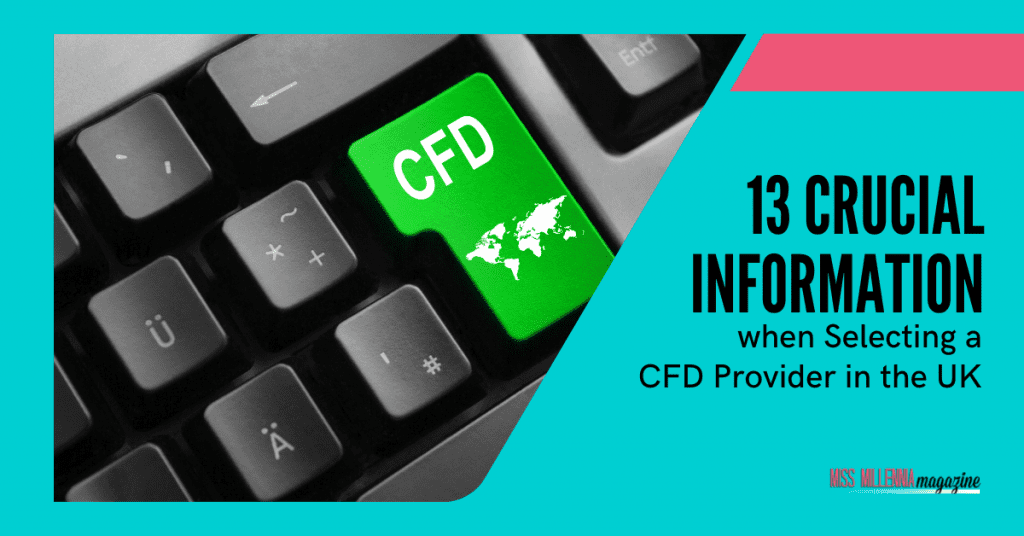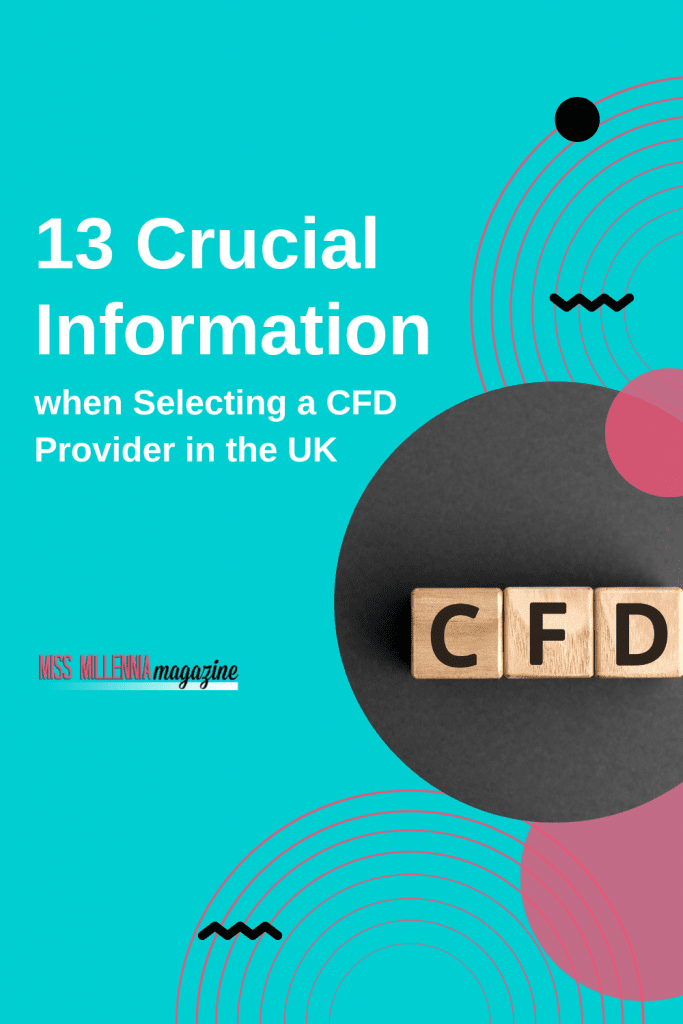13 Crucial Information when Selecting a CFD Provider in the UK

A Contract for Difference (CFD) is an increasingly popular derivative product among experienced traders and those new to the financial markets in the UK. CFDs can offer leverage opportunities, enabling traders to open positions with a fraction of the total cost while enjoying full exposure to the underlying asset.
When selecting a CFD provider, it is crucial to consider several key factors that will ensure you receive quality execution and an overall positive trading experience. You can find more information on CFD trading in the UK on this link.
#1: Regulation

Any UK-based CFD provider must carry appropriate regulatory status from the Financial Conduct Authority (FCA) or another European financial regulator such as CySEC. Regulatory bodies provide security measures that protect client funds and adhere to strict standards concerning transparency and fairness when dealing with clients.
#2: Platforms and Tools
Traders should ensure that the CFD provider offers a robust trading platform with in-built charting capabilities, technical indicators, and other tools to analyze markets and make decisions based on sound data. Additionally, having access to real-time market news can help traders stay abreast of changes in the financial landscape.
#3: Leverage
CFDs offer leverage opportunities, enabling traders to open positions with only a fraction of the total cost while enjoying full exposure to the underlying asset. Traders must select a CFD provider that offers appropriate leverage levels depending on their risk appetite and experience level.
#4: Commission Costs
CFD providers usually charge an upfront commission when opening a position and then again when closing the trade. Therefore, comparing different CFD providers on these commission costs is worthwhile, as they can add up and impact overall profitability over time.
#5: Market Access
The range of markets offered by CFD providers should be considered when selecting. Any provider worth their salt will provide quality access to the most popular asset classes, such as forex, indices, commodities, shares, and cryptocurrencies.
#6: Customer Service

CFD trading can involve complex decisions in fast-moving markets, so having timely support from knowledgeable customer service staff can be invaluable. Traders should assess whether their prospective provider offers customer service via telephone or online chat during regular business hours and beyond this if required.
#7: Company Reputation
The overall reputation of the CFD provider should be taken into account when making a selection. Traders can research customer reviews, social media activity, and other metrics to understand better how the company is viewed by its customers.
#8: Demo Accounts
CFD providers often offer free demo accounts, allowing traders to test their trading platform and become familiar with market movements before committing any real money. Selecting a provider that offers this service is crucial as it provides an excellent way for traders to gain experience without risking capital.
#9: Negative Balance Protection
This feature prevents traders from owing more than they invest if their positions substantially move against them. In addition, most regulated CFD providers offer negative balance protection to ensure that traders’ losses are limited to the amount of capital they have deposited with the provider.
#10: Guaranteed Stops
This feature helps traders protect themselves from slippage, allowing them to lock in their desired exit level regardless of market volatility or gapping prices. Most CFD providers offer this service, but certain conditions may apply, so it is wise to familiarise yourself with these before executing trades.
#11: Educational Resources

CFD providers should also offer educational resources to help traders understand the markets and develop their trading strategies. It could include videos, webinars, eBooks, and other materials traders can use to enhance knowledge and sharpen skills.
#12: Account Types
Different CFD providers may offer different account types tailored to varying levels of trader experience or account size. Therefore, traders must select a provider which provides an appropriate type of account for their needs, with features such as segregated client funds and negative balance protection available when necessary.
#13: Mobile Trading
The ability to trade on the go is becoming increasingly important in today’s fast-paced markets, so selecting a CFD provider that offers mobile trading capabilities is beneficial. In addition, a good app should provide access to the full range of features available via their desktop platform, allowing traders to monitor positions and execute trades efficiently wherever they are.








